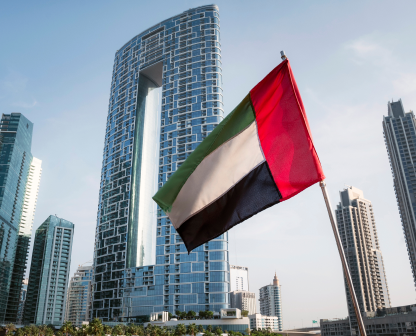Emiratisation in Dubai, Hire Emiratis in UAE
With the support of Emiratisation Gate, you will be able to enhance your Emiratisation practices in your private sector company. Consequently, UAE locals will be able to make the most out of top-notch employment vacancies with competitive salaries. As a result, they will have the opportunity to extend their skills by accepting paid apprenticeships. In the same way, companies can benefit from hiring UAE nationals and expanding their businesses.

What we can do

Hire an Emirati
Our industry and recruiting experts source top Emirati talent based on your defined needs in no time.

Find a Job
We specialize in pairing skilled Emirati professionals with companies seeking their talents.
We are Providing You The Best Emirati Talent
We give you access to Emiratisation. With us, you will be able to mitigate penalties in the UAE.

Avoid fees and penalties

Find expert Emirati talent

Enhance your workforce and productivity
Find Emirati Talent For All Industries
With us, you will be able to find the ideal Emirati candidates for your vacancies in almost any industry.
HR & Administration
Finance & Accounting
Legal
IT and Technical
Sales and Marketing
Audit
Procurement & Facilities
Office Support
Ready to Empower Your Talent Acquisition Journey?
Benefits of Emiratisation

Government Assistance
Businesses employing local Emiratis will be able to receive governmental support. This can include, lower visa fees in government contracts, financial grants, and more.

Cultural Understanding
Businesses recruiting Emiratis will be able to obtain a wider local understanding thanks to these new workers. As they will bring the necessary cultural knowledge to any foreign company.

Compliance
Companies that abide by Emiratisation laws will be able to keep their compliance with the authorities. Consequently, evading any fees or penalizations.

Diverse Perspectives
By recruiting local talent, companies have access to new ideas and perspectives, giving them a competitive edge and allowing them to develop innovative solutions.

Government Relations
Local Emirati employees are likely to be more loyal to their employers. Thus, making them more likely to stay with the company for the long term, reducing staff turnover and increasing job satisfaction.

Long Term Partnerships
Companies can gain access to local networks and resources. As a result, allowing them to expand their business and reach more customers.
Career Opportunities By Nafis







Career Guidance
The Emiratisation Career Counseling Program is a great initiative taken by the UAE government to help young nationals find their desired career paths. This program provides guidance, advice and support to those who seek employment in the UAE. It helps members develop their skills, identify their strengths and weaknesses, and make informed decisions about their career choices.
The program also offers career counselling, job search advice, and mentoring services. Likewise, it helps members to identify and apply for job openings in the UAE. This program has been successful in helping nationals find meaningful employment opportunities that match their skills and interests.

Job Offers
The Emiratisation Job Offers Program is a unique initiative in the United Arab Emirates that seeks to provide opportunities for citizens of the country to fill positions within the workforce. The program is part of the UAE’s national policy to promote Emiratization, or the employment of UAE citizens in the private sector.
The program relating to jobs for Emirati nationals encourages and supports employers who hire UAE nationals. It also provides incentives and resources to help these employers create an environment in which employees can thrive. The objective is to ensure that UAE citizens have access to meaningful and rewarding jobs, while also allowing employers to benefit from the expertise and loyalty of UAE citizens. It provides a platform for talented UAE jobseekers to connect with potential employers, and provides job-related training and development.

On Job Training Offers
The Emiratisation On Job Training Offers Program provides an opportunity for Emiratis to receive on-the-job training and hands-on experience in a variety of industries and sectors. This program helps to ensure that the UAE is well-equipped to meet the demands of its rapidly growing economy. The program also provides a unique opportunity for Emirati national to gain practical skills and experience to help them excel in their future careers.
The program has been successful in helping to bridge the gap between employers and potential employees, as well as providing work experience to Emiratis. It is a key part of the UAE’s overall national agenda to ensure that its citizens have the necessary skills and qualifications to contribute to the country’s economy.

Healthcare Excellence
The Emiratisation Healthcare Excellence Program focuses on providing Emiratis with the necessary skills and training to succeed in the healthcare sector. It is designed to create a more inclusive healthcare system that ensures access to quality healthcare for all citizens. The program also encourages Emiratis to pursue healthcare careers and provides them with appropriate career guidance and resources.
It seeks to ensure that Emiratis are given the same opportunities as all other healthcare professionals and that they are able to make significant contributions to the UAE’s healthcare system. Overall, the Emiratisation Healthcare Excellence Program is an important part of the UAE’s efforts to create a more inclusive healthcare system.

Apprentice Program Offers
The Apprentice Program Offers program is an initiative launched by the UAE government to help Emirati nationals acquire the knowledge and skills necessary to succeed in the modern workforce. The program offers students the opportunity to gain practical experience in a variety of fields, while also providing them with the necessary training and mentorship to help them develop their professional skills.
The program also includes job placement services, which help students find employment upon completion of the program. It aims to ensure that Emirati nationals are well-equipped to take on the challenges of the modern workforce. Likewise, to contribute to the overall progress of the UAE economy.

Talent Program
The Emiratisation Talent Program is an initiative by the UAE government to nurture and develop the talents of Emiratis, in order to increase their presence and participation in the workforce. It focuses on providing training, education, and mentorship opportunities for Emiratis to ensure they are equipped with the necessary skills and knowledge to succeed in the job market.
The program also encourages employers to create more job opportunities for Emiratis and to promote the development of their skills.
Explore UAE National Jobs Opportunities with us!
Learn more about Emiratisation in the industry now!
Frequently Asked Questions
One of the key initiatives by the UAE government is Emiratisation, a program focused on incorporating UAE nationals into the private sector through job opportunities. Starting on January 1, 2023, hiring practices for UAE nationals will be subject to the new emiratization policies. Companies that violate the standards for emiratisation will face penalties.
The UAE Labour Law does not specify a minimum pay, although it does state in general that salaries must be sufficient to meet employees’ fundamental necessities.
All employers under the jurisdiction of the Ministry of Human Resources and Emiratization (MOHRE) are subject to the new emiratization rules. Regarding the United Arab Emirates’ attempts to become more emirate, MOHRE released a new Ministerial Decision.
This mandate requires all private sector enterprises to not only adhere to the 2% Emirati quota but also to raise it yearly until it reaches 10% by 2026. The quotas would stay at 4% and 5%, respectively, for the insurance and banking industries.
By 2025, the NAFIS initiative hopes to generate 75,000 new private sector jobs. Our emiratisation recruitment services assist Emiratis at every career level, from entry-level positions to senior roles. It is now mandatory for all organizations to register with NAFIS, a division of the Ministry of Human Resources and Emiratization. Emiritisation Gate will help you comply with the procedure by guiding you through it.
Are you a UAE National Looking for the Job?
Book a free consultation by filling out the form below.
